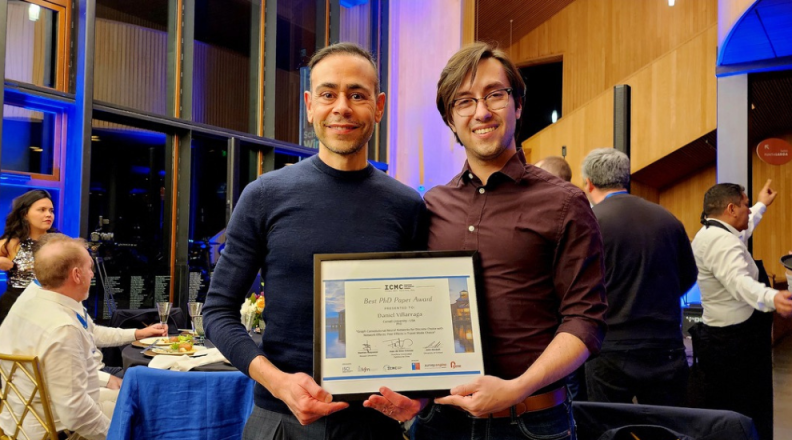Daniel Villarraga, Ph.D. student in Transportation Systems won the Best Paper led by a PhD Student Award at the 2024 International Choice Modelling Conference in Puerto Varas, Chile for his article "Graph Convolutional Neural Networks for Discrete Choice with Network Effects: Peer Effects in Travel Mode Choice.”
The International Choice Modelling Conference brings together leading researchers and practitioners from across the world and across different areas of study to review recent advances in knowledge and understanding in methodology as well as real world applications of choice models and stated choice and revealed preference survey techniques.
Working under the direction of Ricardo Daziano, associate professor,this study bridges the gaps between discrete choice modeling and machine learning by implementing design decisions informed by machine learning developments, thereby achieving the desired outcomes in parameter stability and behavioral alignment required in the discrete choice field.
“For instance, our proposed model incorporates skip connections – a key component in deep learning models – to effectively represent the private and socially-informed parts of alternative-specific utilities while significantly simplifying the training procedure. We also we adopt batch normalization, another critical element in modern deep learning models, to improve the training process’s stability and efficiency, effectively setting the scale and location of the alternative specific utilities. We discuss each of our modeling assumptions in detail in the full version of the paper, providing the reasoning behind them from a discrete choice perspective and discussing the empirical support from the machine learning viewpoint,” described Daziano.
These architecture decisions offer discrete choice practitioners the insights needed for designing interpretable deep learning model architectures that accurately reflect their desired behavioral assumptions, while also attaining good predictive performance.





